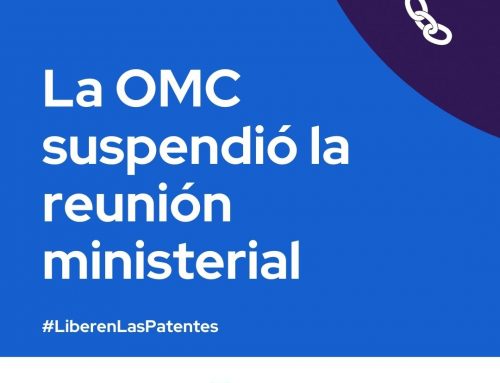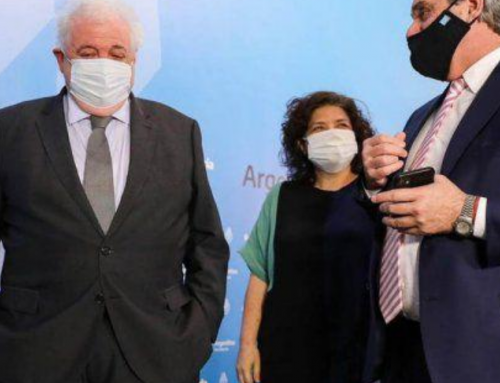The Argentinian National Institute of Industrial Property (INPI, by its acronym in Spanish) signed a bilateral agreement with the US Patent Office on February 13th that includes reciprocal acceptance of patenting results of both offices. The news are grave and serious as the «Patent Prosecution Highway Between USPTO and INPI-Argentina» effectively repeals the Argentine Patent Law, therefore negatively impacting on the price, availability and access to essential drugs in favor of multinational pharmaceutical corporations’ illegitimate patents.
To add insult to injury, the agreement has been signed as a «pilot program» lasting three years as a means to avoid its treatment and approval by Congress, a necessary step for any agreement modifying the application of a national law. Besides that, the training of INPI staff will be in charge of the US Patent Office so that «Argentine employees and technicians follow the process of granting trademarks and patents according to the parameters established in the United States«. These actions however are not surprising given the background: Dámaso Pardo, INPI’s recently appointed president, was until June 2016 a partner of the mega studio Perez Alati, Grondona, Benites, Arnsten & Martínez de Hoz (h), where he defended the corporations whose patent applications the office he runs now must regulate. In a meeting with GEP in August last year, Pardo said that his role is simply to «deliver property rights if they meet the requirements». Translation: under his mandate, Argentina’s national patent office will prioritize commercial rights over basic human rights such as access to health.
Pardo himself promoted Resolution No. 56/2016, establishing that INPI may begin to grant patents in the country without a rigorous examination of patent applications, most of which do not comply with legal requirements. In a similar spirit to the recently signed agreement, this standard allows studies conducted by patent offices in other countries to be considered for granting them in Argentina. In this way, monopolies that allow multinational companies to arbitrarily set extortive prices for medicines are encouraged and promoted. Some of those monopolies, as in the case of antiretrovirals and tuberculosis treatments, have been identified as among the main causes for stock lackings for months in the three health subsystems of the country (public, health insurance and pre-paid medicine).
Both measures de facto imply the annulment of the current patentability guidelines, considered globally as an example of public health protection. The guidelines are fundamental because they aim to avoid the illegal pitfalls of multinational pharmaceuticals such as «evergreening» – the perpetuation of monopolies that renew the term of exclusivity on essential drugs. These undeserved monopolies prevent the manufacture of high quality, low cost generic versions. Since 2013, CAEMe (the Chamber of Medicinal Specialties, which gathers multinational pharmaceutical companies in Argentina) has been suing the State over its patentability guidelines, which in turn motivated our «Big Pharma: Drop the Case!» campaign.
The recently adopted mechanism known as «Patent Highway» is considered by civil society that defends the right to health worldwide as a threat for access to life-saving treatments. Its illegitimate adoption in Argentina must be denounced and fought by society as a whole: our most fundamental rights are in grave danger. Medicines are not a commodity but a social good that guarantee the human right to health.




Deja tu comentario
Debe iniciar sesión para escribir un comentario.